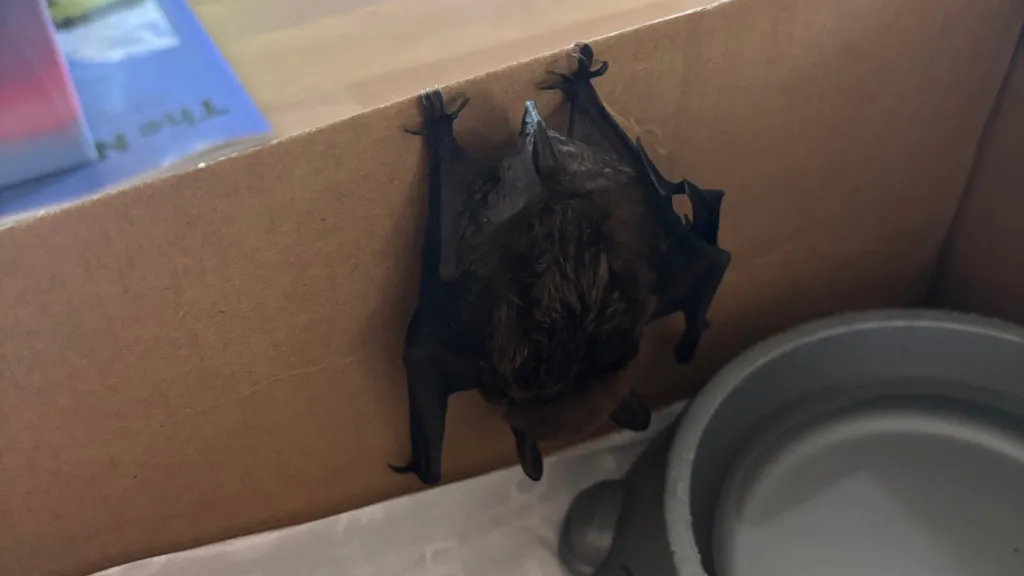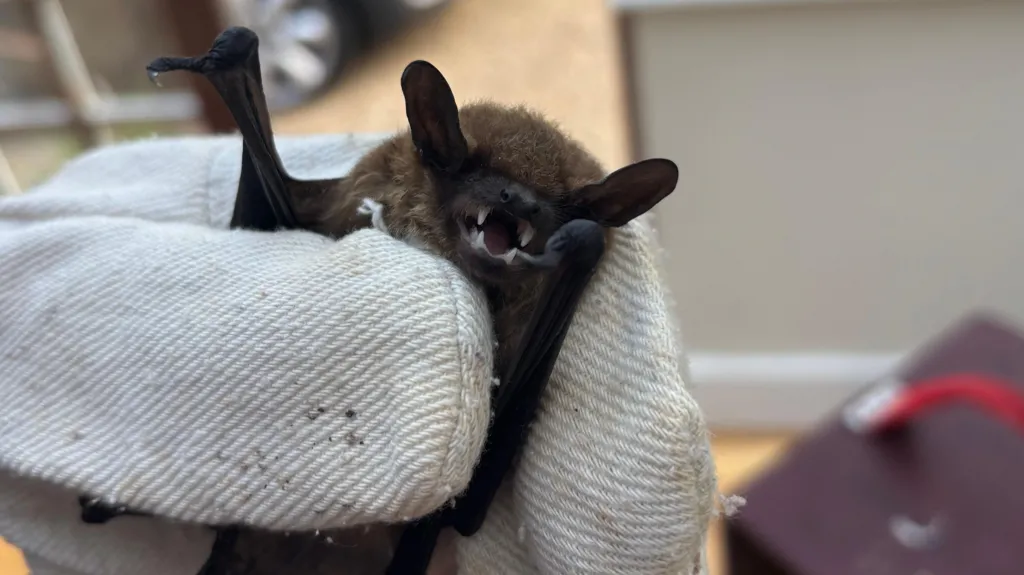Rare Rabies-Like Virus Found in Rescued Bat on the Isle of Wight
A rescued bat discovered in a back garden on the Isle of Wight has tested positive for European Bat Lyssavirus-1 (EBLV-1) — a rare rabies-like virus — according to the UK Department for Environment, Food and Rural Affairs (Defra).
The injured bat was found earlier this month in Shorwell, where a local resident carefully picked it up using gloves and kept it overnight in a shoebox until it could be collected by volunteers from the Isle of Wight Bat Hospital.
Following testing, the Animal and Plant Health Agency (APHA) confirmed the presence of EBLV-1, a virus that can cause rabies disease in bats, though it is not the classical rabies virus associated with dogs and most global human rabies cases.

No Risk to Public or Pets, Experts Say
Despite the discovery, Defra reassured the public that no other mammals are considered at risk. APHA confirmed that no human or animal had been scratched or bitten by the bat in this incident.
“There is no threat to public health unless a bat is handled directly,” a Defra spokesperson said.
What Is European Bat Lyssavirus-1?
EBLV-1 is one of two extremely rare bat lyssaviruses found in the UK — the other being EBLV-2. These viruses can cause rabies but are different from the classical strain of the virus.
According to the Bat Conservation Trust, fewer than 0.3% of tested bats have carried a rabies-related virus since testing began in 1986. Out of more than 19,000 bats tested, only 59 have been positive. EBLV-1 has only been detected in serotine bats in the UK, with the first case reported in Dorset in 2018.
As of May 2024, 34 confirmed cases of EBLV-1 have been recorded in the UK, based on data from the University of Surrey and APHA.
UK Remains Rabies-Free
Despite these findings, the UK continues to maintain its rabies-free status. According to Alex Morss of the Bat Conservation Trust, there have been only two recorded human cases of rabies viruses from wild British animals — one in 1902 and the other in 2002.
Morss emphasized that bats pose no health risk to humans if left undisturbed:
“There is no risk to human health if you do not handle British bats, even if they are roosting in buildings you use.”
What to Do If You Encounter a Bat
- If you are bitten, scratched, or licked by a bat, seek immediate medical attention and contact the National Bat Helpline at 0345 1300 228.
- Rabies vaccinations are 100% effective if given soon after exposure.
- Do not disturb or handle bats, which are shy and non-aggressive mammals.
- If a bat is in distress, wear thick gloves and a face covering, and contact a licensed handler or bat rescue organization.
All 18 species of British bats and their roosts are protected by law, and handling them without a license is illegal, except in emergency rescue situations.
